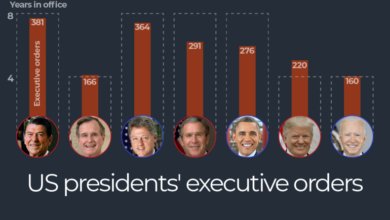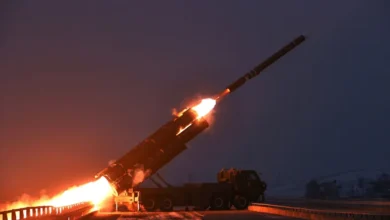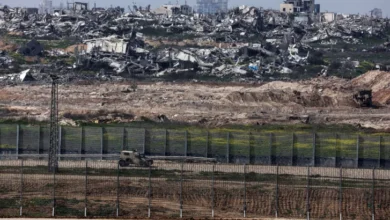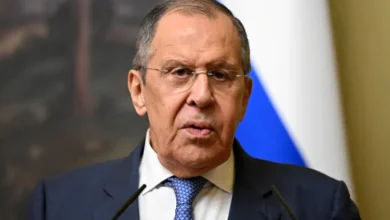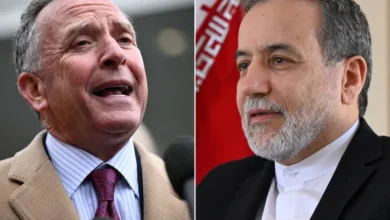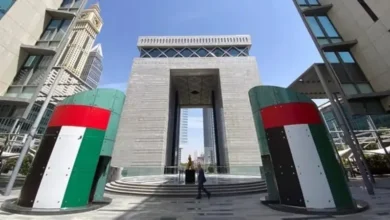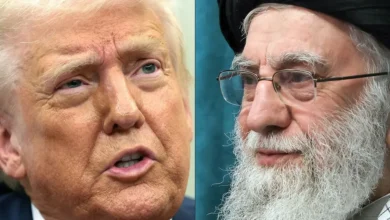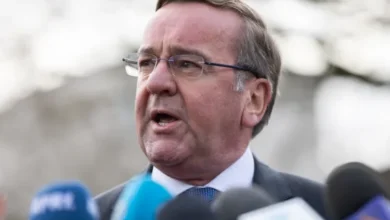Pakistan ex-PM accuses military of trying to destroy his party
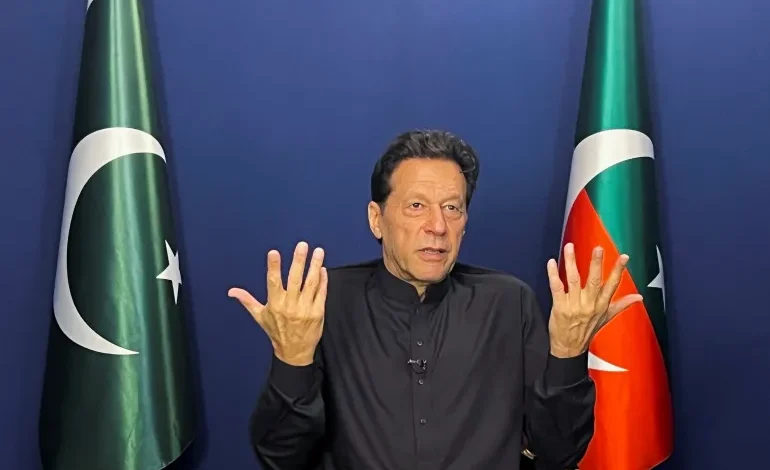
Pakistan’s embattled former Prime Minister Imran Khan has accused the powerful military and its intelligence agency of openly trying to destroy his political party, saying he has “no doubt” he will be tried in a military court and thrown in jail.
Khan has hinted previously at the military’s hand in a crackdown on his Pakistan Tehreek-e-Insaf (PTI) party, but his comments in an interview at his Lahore home on Saturday night were the most blunt yet.
“It is completely the establishment,” the former cricket hero told Reuters news agency when asked who was behind the crackdown. “Establishment obviously means the military establishment, because they are really now openly – I mean, it’s not even hidden now – they’re just out in the open.”
A spokesman for the military – which has run the country directly or indirectly for its 75-year history, and which has seldom faced the sort of public challenge to its power that it has from Khan – did not respond to a request for comment.
A bruising year-long standoff between Khan, Pakistan’s most popular leader according to polls, and the army came to a head when military buildings and property were ransacked last month, allegedly by his supporters.
The political unrest has increased uncertainty in the nuclear-armed country of 220 million, which is also beset by financial turmoil. Its $350bn economy is struggling to stave off default, control record inflation and deal with a plummeting currency.Authorities have begun the process of trying dozens of people, including members of Khan’s party, suspected of involvement in the protests in military court – usually reserved for service members or those categorised as enemies of the state.
“That’s the only way they are going to get me into prison,” Khan said, adding the military wanted to stop him from returning to power in elections due by November.
He said about 150 criminal cases filed against him were frivolous and would get thrown out in any civilian court.
“So their only hope, and because they are determined to get me out of the way, I think they will, their whole charade of military courts is to imprison me,” he said. “I have absolutely no doubt that the military courts are meant for me,” added Khan, who is out on bail.
Amnesty International says Pakistan’s military courts have previously shown disregard for due process, lack of transparency, coerced confessions and executions after unfair trials.
Spy agency
Khan said the country’s most powerful spy agency, the military’s Inter-Services Intelligence (ISI), was deeply involved in the crackdown.
He said two senior members of his party were called by the agency for talks. “And when they went there, just they shut them up and said ‘You [won’t] leave unless you renounce being part of PTI.’”
Khan said he has tried to contact the military for talks to find a way out of the current crisis but got no response, and he did not know why the army chief, General Asim Munir, was “fixated” on sidelining him.
Before becoming army chief in November 2022, Munir was the head of the ISI – a post from which he was suddenly removed in 2019 while Khan was prime minister.‘Enemy of the state’
No official reason was given for Munir’s removal, but Khan acknowledged in the interview, for the first time, that he had wanted him gone from the role.
“I think that maybe he has a grudge because I asked him to resign” as ISI chief, Khan said. “I don’t know.”
When asked why he had asked Munir to resign, Khan said: “You know, I, as prime minister, felt that how the intelligence agency was run … I had my issues with that.” He did not elaborate.
Munir was later selected as the country’s top general by Khan’s successor and political rival, Prime Minister Shehbaz Sharif.
‘Enemy of the state’
No official reason was given for Munir’s removal, but Khan acknowledged in the interview, for the first time, that he had wanted him gone from the role.
“I think that maybe he has a grudge because I asked him to resign” as ISI chief, Khan said. “I don’t know.”
When asked why he had asked Munir to resign, Khan said: “You know, I, as prime minister, felt that how the intelligence agency was run … I had my issues with that.” He did not elaborate.
Munir was later selected as the country’s top general by Khan’s successor and political rival, Prime Minister Shehbaz Sharif.
